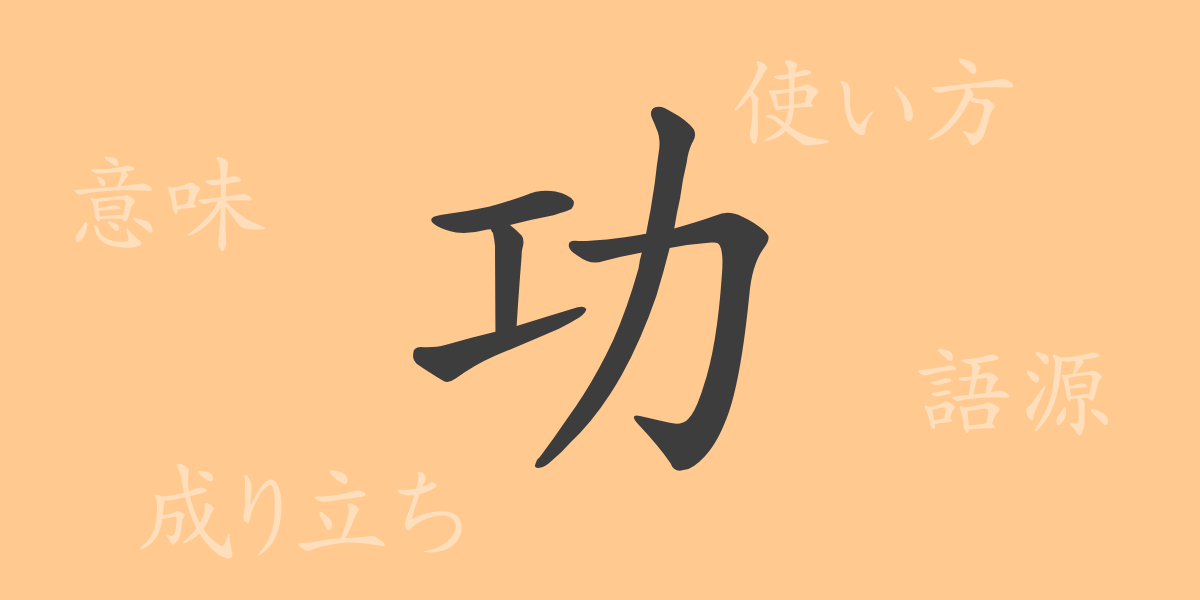The beauty of the Japanese language lies in its rich expressions. One of the 常用漢字(jouyou kanji), “功(こう)”, plays an essential role in the daily life and culture of the Japanese people. In this article, we will explore the meaning, usage, and history behind the kanji “功(こう)”. By understanding the profound meanings embedded in each kanji, we can appreciate the true value of the language more deeply.
Origins of 功 (Etymology)
The kanji “功(こう)” has its origins in ancient China. This character, derived from pictographs, represents the idea of achieving something through accumulated effort and ingenuity. Initially, it depicted people engaged in labor or work, and over time, it evolved into its current form. “功(こう)” is used to denote accomplishments or achievements and is a significant word in many Asian languages.
Meaning and Usage of 功
The kanji “功(こう)” signifies “to achieve” or “to accomplish” something. It is often used in words like “功績(こうせき)” (achievements) and “功労(こうろう)” (meritorious service), highlighting the attainment of goals or completion of tasks by individuals or groups. In Japanese, expressions involving this kanji are commonly used to acknowledge efforts and results, making it an indispensable part of everyday language.
Readings, Stroke Count, and Radical of 功
The kanji “功(こう)” has several readings and structural characteristics in Japanese.
- Readings: The on’yomi (音読み) is “コウ(こう)”, and the kun’yomi (訓読み) is “いさお” (isao).
- Stroke count: “功(こう)” consists of 5 strokes.
- Radical: The radical is 力(ちから), meaning “power” or “strength”.
Compound Words, Idioms, and Proverbs Using 功
There are numerous compound words, idioms, and proverbs in Japanese that include “功(こう)”. Here are a few examples:
- 功を奏する(こうをそうする) – To bear fruit from efforts.
- 無功徳(むくどく) – To have no achievements or virtues.
- 功名心(こうみょうしん) – A desire for fame and glory.
- 功徳を積む(くどくをつむ) – To accumulate merits.
Summary of 功
The kanji “功(こう)” carries more than just a literal meaning; it is deeply rooted in Japanese culture and values. Through this article, you have gained an understanding of the history and significance of “功(こう)”, and felt the depth of the Japanese language. By consciously incorporating such kanji into daily language use, richer and more expressive communication becomes possible.

























